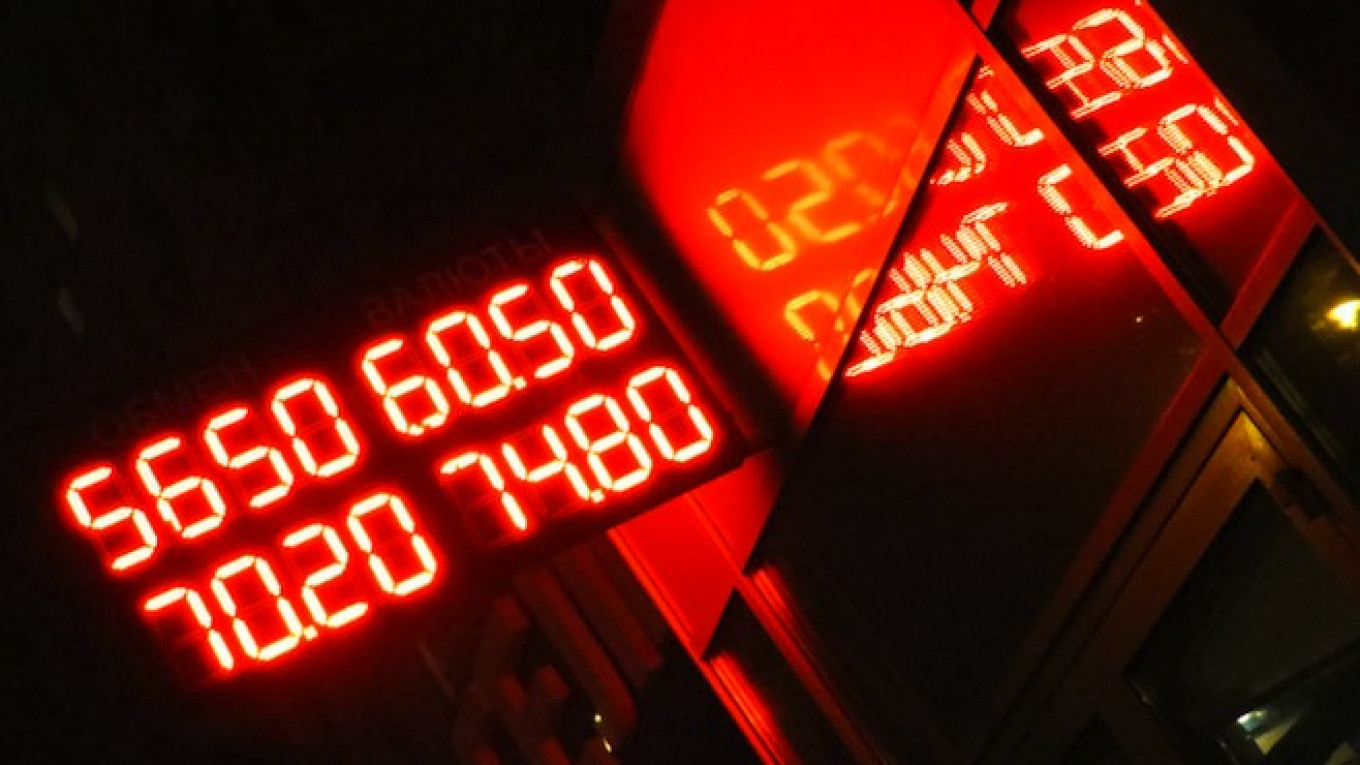While the ruble collapsed 10 percent on Monday, making headlines around the world, some Russians may have been unaware of the recent intensification of their currency's woes.
A prime-time news bulletin broadcast by state-owned Channel One at 9 p.m. on Monday only featured a short segment on the currency drop — the fifth item on the news program — after reports about the terrorist attack in Australia, the killing of a terrorist suspect by law enforcement authorities in Russia and two announcements by President Vladimir Putin on military parades and construction targets.
When the report on the ruble was shown it blamed the decline in value on the falling price of oil —despite the ruble's fall being significantly sharper Monday than that of Brent crude and actually starting against the background of strengthening oil prices.
The apparent unwillingness of Russian state-owned media to give airtime to the ruble's troubles — particularly among television channels, which are traditionally much more tightly controlled by the Kremlin — likely reflects the political sensitivity of the issue, and a desire to avoid fueling panic.
Most Russians get their news from state television, which has closely mirrored Putin's anti-American rhetoric during the Ukraine crisis.
In a popular sleight of hand, state-owned news outlets have preferred to phrase ruble falls in recent months as euro or dollar rises. "Western currencies gained in value at breakneck speed all day Monday," one report on state-controlled NTV read late Monday.
The Central Bank's emergency overnight decision to raise interest rates to 17 percent was reported by most major television channels Tuesday morning, but in many cases was quickly pushed down the news agenda by reports of snap military drills in Russia's western Kaliningrad region.
A Message from The Moscow Times:
Dear readers,
We are facing unprecedented challenges. Russia's Prosecutor General's Office has designated The Moscow Times as an "undesirable" organization, criminalizing our work and putting our staff at risk of prosecution. This follows our earlier unjust labeling as a "foreign agent."
These actions are direct attempts to silence independent journalism in Russia. The authorities claim our work "discredits the decisions of the Russian leadership." We see things differently: we strive to provide accurate, unbiased reporting on Russia.
We, the journalists of The Moscow Times, refuse to be silenced. But to continue our work, we need your help.
Your support, no matter how small, makes a world of difference. If you can, please support us monthly starting from just $2. It's quick to set up, and every contribution makes a significant impact.
By supporting The Moscow Times, you're defending open, independent journalism in the face of repression. Thank you for standing with us.
Remind me later.







